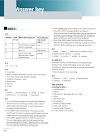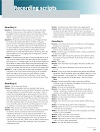/cdn.vox-cdn.com/uploads/chorus_image/image/63781483/vpavic_190508_3403_0377.0.jpg)
Google Fuchsia remains shrouded in mystery, but the company is slowly beginning to open up about the next-generation operating system, what its purpose is, and what devices it might power. At Google’s I/O developer conference this past week, Android and Chrome chief Hiroshi Lockheimer offered some rare insight into Fuchsia, albeit at a very high level, in front of public audiences.
- reveal /ri'vi:l/ (v) để lộ, tiết lộ
- experimental /iksperi'mentl/ (adj) dựa trên thí nghiệm; để thí nghiệm, thực nghiệm
- shroud /∫raʊd/ (n) màn che, (v) giấu, bao phủ
- mystery /'mistəri/ (n) điều bí ẩn, vẻ bí hiểm
- purpose /'pɜ:pəs/ (n) mục đích; ý định (v) có ý định, nhắm tới
- conference /'kɒnfərəns/ (n) hội nghị
- albeit /,ɔ:l'bi:it/ (liên từ) mặc dù
- audience /'ɔ:diəns/ (n) khán giả, sự hội kiến
- purpose /'pɜ:pəs/ (n) mục đích; ý định (v) có ý định, nhắm tới
- conference /'kɒnfərəns/ (n) hội nghị
- albeit /,ɔ:l'bi:it/ (liên từ) mặc dù
- audience /'ɔ:diəns/ (n) khán giả, sự hội kiến
What we do know about Fuchsia is that it’s an open source project, similar to AOSP, but could run all manner of devices, from smart home gadgets to laptops to phones. It’s also known to be built on an all-new, Google-built kernel called “zircon,” formerly known as “magenta,” and not the Linux kernel that forms the foundation of Android and Chrome OS.
- kernel /'kɜ:nl/ (n) nhân, cốt lõi, hạt
- formerly /'fɔ:məli/ (adv) trước đây
- foundation /faʊn'dei∫n/ (n) sự thành lập, nền móng, nền tảng, cơ sở
Beyond that, we don’t know much and have only really seen a brief peek at a prototype Fuchsia-powered user interface two years ago. There have also been reports over the last 12 months or so regarding Google Fuchsia dev tests on the Pixelbook and nebulous plans for a product development timetable that would see an official Fuchsia device released in three to five years. Plus, the Google Home Hub (now called the Nest Hub) is thought to be one of the test devices for Fuchsia.
- prototype /'prəʊtətaip/ (n) nguyên mẫu
- regard /ri'gɑ:d/ (v) nhìn, coi như, xem như, để ý, lưu ý
- nebulous /'nebjʊləs/ (adj) mây mù, mù mịt, lờ mờ, không rõ ràng
- thought /θɔ:t/ - think
But onstage during a live recording of The Vergecast yesterday, Lockheimer finally opened up about the ultimate goal of Fuchsia.
- onstage /ˈɑːnˈsteɪʤ/ (adv) trên sân khấu
“We’re looking at what a new take on an operating system could be like. And so I know out there people are getting pretty excited saying, ‘Oh this is the new Android,’ or, ‘This is the new Chrome OS,’” Lockheimer said. “Fuchsia is really not about that. Fuchsia is about just pushing the state of the art in terms of operating systems and things that we learn from Fuchsia we can incorporate into other products.”
He says the point of the experimental OS is to also experiment with different form factors, a hint toward the possibility that Fuchsia is designed to run on smart home devices, wearables, or possibly even augmented or virtual reality devices. “You know Android works really well on phones and and you know in the context of Chrome OS as a runtime for apps there. But Fuchsia may be optimized for certain other form factors as well. So we’re experimenting.”
- experimental /iksperi'mentl/ (adj) dựa trên thí nghiệm; để thí nghiệm, thực nghiệm
- hint /hint/ (n) sự gợi ý, dấu vết, lời khuyên (v) gợi ý, ám chỉ, nói bóng gió
- augmented (adj) được tăng cường
- virtual /'vɜ:t∫ʊəl/ (adj) thực tế, ảo
- reality /ri'æləti/ (n) thực tế
- possibly /'pɒsəbli/ (conj) có thể; có lẽ
Lockheimer became somewhat cryptic at the end of his answer, following it up with, “Think about dedicated devices... right now, everybody assumes Fuchsia is for phones. But what if it could be used for other things?”
- somewhat /'sʌmwɒt/ (adv) hơi, khá là
- dedicated /'dedikeitid/ (adj) tận tâm, chuyên dụng
- assume /ə'sju:m/ (v) cho rằng, thừa nhận, đảm đương, gánh vác
At a separate Android fireside chat held at Google I/O earlier today, Lockheimer provided some additional details, although still similarly cryptic in his specifics. “It’s not just phones and PCs. In the world of [the Internet of Things], there are increasing number of devices that require operating systems and new runtimes and so on. I think there’s a lot of room for multiple operating systems with different strengths and specializations. Fuchsia is one of those things and so, stay tuned,” he told the audience, according to 9to5Google.
- fireside /'faiəsaid/ (n) chỗ cạnh lò sưởi
- a fireside chat (thành ngữ) bài phát thanh buổi nói chuyện với nhân dân của tổng thống
- cryptic /'kriptik/ (adj) bí hiểm
- runtime: lúc chạy, khi thực hiện
- specialization /,spe∫əlai'zei∫n/ (n) sự chuyên môn hóa, sự chuyên về






